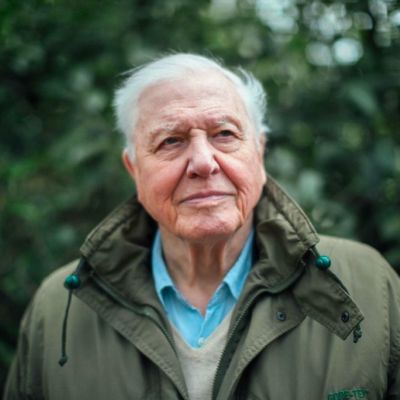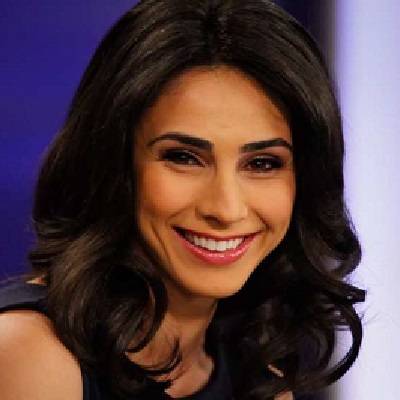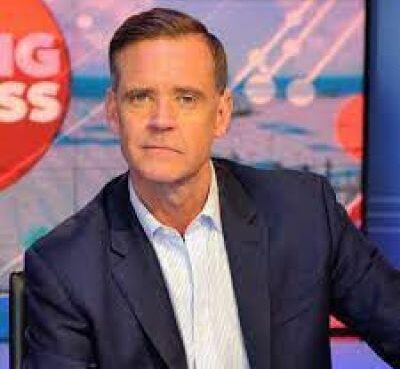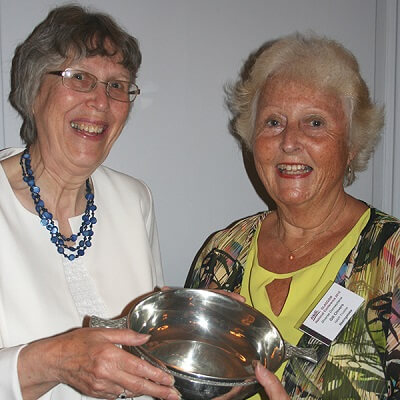David Attenborough- Biography
Page Contents
David Attenborough has been the voice of natural history shows all around the world for more than six decades. His contributions to wildlife filmmaking and broadcasting are unrivaled. His proclivity for taking on new initiatives and converting them into critically acclaimed broadcasts has earned him the title of “legend” in his business. Even his harshest opponents praise his broadcasts as the pinnacle of public service radio. He is the first recognized broadcaster to have addressed this issue with earnestness.
He examined the most recent discoveries, earned the scientific community’s trust, introduced new shots, focused on events, and intentionally limited his on-screen appearance. His wildlife series has had such an influence that he has been dubbed “the great communicator” and “the peerless educator.” However, he has been chastised for painting a false picture of pristine wilderness, diverting attention away from the threat of human encroachment on wild flora and species. Overpopulation and creationism, he claims, are the fundamental drivers of environmental problems and the reduction in wildlife diversity.
David Attenborough- Birth, Age, Ethnicity, Siblings, Education
On May 8, 1926, in Isleworth, Middlesex, England, David Attenborough was born to Mary and Frederick Attenborough, the head of the ‘University College,’ Leicester. He grew interested in collecting fossils, stones, and natural specimens from a young age.
David attended ‘Wyggeston Grammar School for Boys.’ David was awarded a scholarship at ‘Clare College’ of ‘Cambridge University in 1945, where he earned a degree in natural sciences. He was drafted into the ‘Royal Navy’ in 1947 and spent two years stationed in North Wales and the Firth of Forth.
Personal History and Legacy
Richard Attenborough, his older brother, was an actor, and John Attenborough, his younger brother, was an executive at ‘Alfa Romeo.’ His parents raised two European refugee girls. He married Jane Elizabeth Ebsworth Oriel in 1950, and the couple had two children, Robert and Susan. Susan is a former school principal, whereas Robert is a senior lecturer in bioanthropology at the ‘Australian National University.’
In 2005 and 2006, he supported a ‘BirdLife International’ project to stop the slaughter of albatross by longline fishing vessels, and he publicly supported the WWF’s battle to safeguard the rainforest.
He is the vice president of BTCV, the president of Fauna and Flora International, the president of Butterfly Conservation, and the president of the Leicestershire and Rutland Wildlife Trust. He has long been a fan of the ‘BBC,’ and he has frequently thrown his support to matters concerning the television license and public broadcasting.
David Attenborough- Professional Career
Following his service in the Navy, he joined the ‘BBC’ in 1952 and later became a producer for the Talks department. One of his first initiatives was a series called ‘Animal, Vegetable, Mineral, and Song Hunter.’ ‘The Pattern of Animals,’ a three-part series, spawned a series about an animal-collecting expedition. ‘Zoo Quest,’ which first aired in 1954, was the first of his many ‘Natural History Unit’ projects for the ‘BBC.’ Following the formation of the ‘BBC Natural History Unit in 1957, he founded the ‘Travel and Exploration Unit’ to assist him in fronting the ‘Zoo Quest,’ ‘Travellers’ Tales,’ and ‘Adventure’ series.
He left the ‘BBC’ in the early 1960s to study social anthropology at the ‘London School of Economics,’ but returned to the ‘BBC’ as controller of ‘BBC Two.’ He took over as controller of ‘BBC Two’ in 1965. In his agenda, he incorporated music, arts, entertainment, archaeology, experimental humor, travel, theatre, sport, business, science, and natural history. When ‘BBC Two’ began broadcasting in color in 1967, he introduced televised snooker and the ‘BBC2 Floodlit Trophy’ on television. In 1969, he was appointed to the position of director of programming, with responsibility for the output of both ‘BBC’ channels. However, he passed down the opportunity and returned to his first love, radio.
He debuted ‘The Tribal Eye,’ ‘The Explorers,’ and ‘Fabulous Animals’ in 1975. A year later, the ‘BBC’ negotiated a co-production agreement with ‘Turner Broadcasting’ to bring ‘Life on Earth’ to the screen. ‘Life on Earth and ‘The Living Planet,’ which aired in the 1970s, were researched and presented utilizing computer technology, etching his name in broadcasting history and creating massive international sales for the ‘BBC.’ He presented ‘Life in the Freezer’ and ‘The Private Life of Plants in the early 1990s. The latter employed time-lapse photography to portray a sped-up rendition of plant growth.
‘The Life of Mammals,’ which aired in 2002, employed low-light and infrared cameras to illustrate nocturnal mammal activity. The documentary ‘Life in the Undergrowth’ used macro photography to capture the natural activity of very small organisms.
‘Life in Cold Blood,’ which aired in 2008, featured reptiles and amphibians, bringing his collection of shows on all major groups of terrestrial animals and plants to a close. He has worked on 3D documentaries for ‘Sky 3D,’ including a two-part series on vertebrate evolution. He’s also worked on another 3D project called ‘Conquest of the Skies,’ which tracks the evolution of flight in animals.
He has been a broadcaster on BBC Radio 4’s ‘Tweet of the Day’ since 2014. David also hosted the well-known documentary series ‘Blue Planet II’ (2017). He narrated the five-part series ‘Dynasties.’ He also provided narration for Netflix’s eight-part documentary series ‘Our Planet’ (2019). He narrated the natural history documentary ‘Wild Karnataka’ the same year.
Major Projects
- The ‘Living’ series, which debuted in 1979, provides a thorough review of all life forms on the globe — the 96 natural history episodes he wrote, presented, narrated, and produced are incalculable in terms of sales or influence.
- He narrated every episode of ‘Wildlife on One,’ a 253-episode ‘BBC One’ wildlife series that aired between 1977 and 2005. It had a weekly audience of eight to ten million at its peak.
- His autobiography, ‘Life on Air,’ was released in 2002. It is one of many of his books that is available as a self-narrated audiobook.
- He has written forewords and introductions for the BBC series ‘Planet Earth,’ ‘Frozen Planet,’ ‘Africa,’ and others.
Achievements & Awards
- In addition to honorary Doctor of Science degrees from the ‘Universities of Cambridge and Oxford,’ he has received 32 honorary degrees from various British universities.
- A poll conducted by the BBC in 2002, he was chosen as one of the “100 Greatest Britons.” According to the ‘New Statesman,’ he is also one of the top ten ‘Heroes of Our Time.’
- In a 2006 poll conducted by ‘Reader’s Digest,’ he was chosen as the most trusted celebrity in the United Kingdom. He received The Culture Show’s ‘Living Icon Award’ the following year.
- He received the ‘BAFTA Desmond Davis Award,’ the Royal Geographical Society’s ‘Cherry Kearton Medal and Award,’ and the ‘Commander of the Order of the British Empire’ in the 1970s (CBE).
- In the 1980s, he was awarded a ‘BAFTA Fellowship,’ a Knighthood, and the title of ‘Fellow of the Royal Society (FRS).
- He was given the ‘Commander of the Royal Victorian Order (CVO) in the 1990s for producing Queen Elizabeth II’s Christmas program for several years.
- Among the noteworthy prizes he got in the 2000s were the ‘Royal Society’s Michael Faraday Prize,’ the ‘Descartes Prize’ for ‘Outstanding Science Communication Actions,’ and the ‘Order of Merit (OM).
- In 2008, he was awarded a fellowship by the ‘Royal Photographic Society.’ In 2010, he earned a medal from the Queensland Society, and in 2011, he won a medal from the Society for the History of Natural History (SHNH). In 2012, he was also awarded the ‘Phillips Memorial Medal’ by the ‘International Union for Conservation of Nature’ (IUCN).
- He was named an ‘Honorary Member of the Moscow Society of Naturalists in 2017. He won a ‘Primetime Emmy Award’ for ‘Outstanding Narrator’ the following year.
Trivia
- Thanks to computerized aircraft schedules, this respected broadcaster was able to visit many destinations throughout the world in each show, even changing continents in the middle.
- This broadcaster is the sole recipient of a ‘BAFTA’ in black and white, color, HD, 3D, and 4K television.
Several species have been named after Sir David Attenborough.
Also Read, Cecilia Allman, Marian Krawstor, and Bronlie Jacobs.




